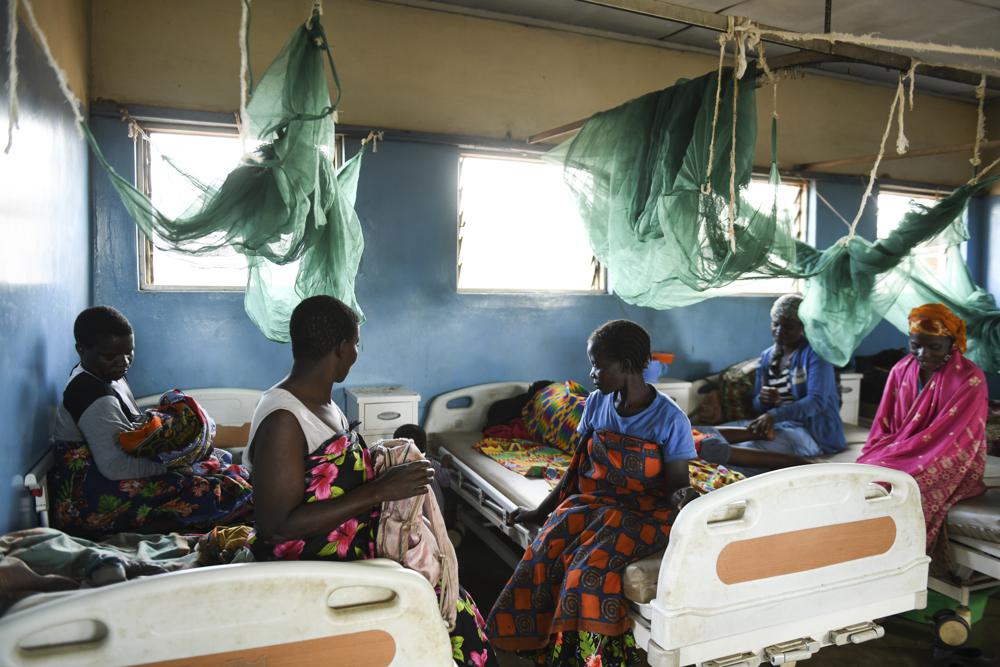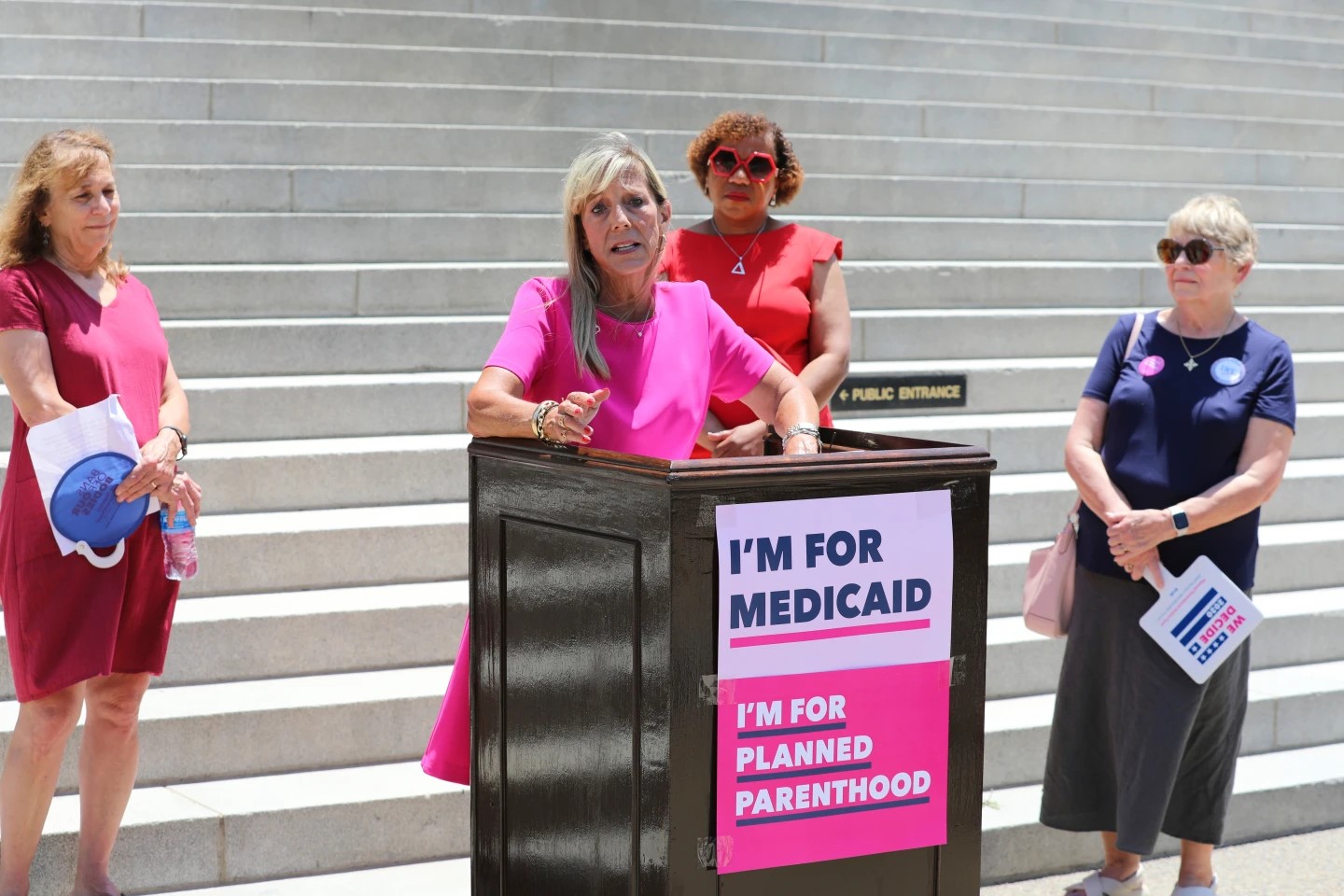Written by LINDSEY TANNER
Pregnancy-related deaths for U.S. mothers climbed higher in the pandemic’s first year, continuing a decades-long trend that disproportionately affects Black people, according to a government report released Wednesday.
Overall in 2020, there were almost 24 deaths per 100,000 births, or 861 deaths total — numbers that reflect mothers dying during pregnancy, childbirth or the year after. The rate was 20 per 100,000 in 2019.
Among Black people, there were 55 maternal deaths per 100,000 births — almost triple the rate for whites.
The report from the National Center for Health Statistics does not include reasons for the trend and researchers said they have not fully examined how COVID-19, which increases risks for severe illness in pregnancy, might have contributed.
The coronavirus could have had an indirect effect. Many people put off medical care early in the pandemic for fear of catching the virus, and virus surges strained the health care system, which could have an impact on pregnancy-related deaths, said Eugene Declercq, a professor and maternal death researcher at Boston University School of Public Health.
He called the high rates “terrible news” and noted that the U.S. has continually fared worse in maternal mortality than many other developed countries.
Pregnancy-related deaths per 100,000 births climbed from 44 in 2019 to 55 in 2020 among Black people and from 13 to 18 among Hispanics. The 2020 rate among whites, 19 per 100,000 births, was essentially unchanged.
Reasons for those disparities are not included in the data. But experts have blamed many factors including differences in rates of underlying health conditions, poor access to quality health care and structural racism.
“This is incredibly sad news and especially scary for Black women,” said Dr. Laura Riley, OB-GYN chief at Weill Cornell Medicine in New York.
Dr. Janelle Bolden, an assistant OB-GYN professor at Northwestern University’s Feinberg School of Medicine, said the report is not surprising.
“The pandemic has uncovered the disparities in access to care, healthcare quality and delivery. It has also laid bare the lack of support for public health and social agencies that many people rely on for basic needs,″ Bolden said. “These disparities and inadequacies lead to poor care and worse outcomes.”
The U.S. maternal mortality rate has more than tripled in 35 years. A decade ago, it was 16 deaths per 100,000 births. It has climbed along with rising rates of obesity, heart disease and cesarean sections, which all increase risks for people giving birth.
Related Stories
‹

Trump Makes Unfounded Claims About Tylenol and Repeats Discredited Link Between Vaccines and AutismPresident Donald Trump on Monday used the platform of the presidency to promote unproven and in some cases discredited ties between Tylenol, vaccines and autism.

Continuing the Legacy: A New Birth Center Opens in Chapel Hill, Honoring Its PredecessorA new birth center recently opened its doors to the Triangle community, offering an alternative to hospital births.

Lack of Service at Chapel Hill’s Women’s Birth and Wellness Center Limits Pregnancy Care OptionsRumors the Women’s Birth and Wellness Center was closing its Chapel Hill clinic began circulating online last May, when the clinic stopped accepting new patient birth requests. Renewed speculation began on Reddit in September as users discussed how after 27 years of serving North Carolina women and families, the clinic may be closing for […]

Fearing COVID, Struggling Malawian Women Forgo Prenatal CareWritten by GREGORY GONDWE Prenatal services at the health clinic were free, but the motorcycle taxi fare cost more than Monica Maxwell could afford. Just four weeks before delivering her baby, she cobbled together 1,400 kwacha ($1.75) for the 50-kilometer (31-mile) round trip. It was only her third visit — fewer than her first two […]

The Carolinas Emerge as New Population Boom States. Affordability and Lifestyle Drive GrowthWritten by MIKE SCHNEIDER ORLANDO, Fla. (AP) — Move over Florida and Texas. The United States has new hot spots for growth, and they both have Carolina in their name. North Carolina last year attracted more new residents, 84,000 people, from other parts of the country than any other state, a title held by Texas in 2024 and Florida […]

China Exploits US-Funded Research on Nuclear Technology, a Congressional Report SaysChina is exploiting research partnerships funded by the U.S. Department of Energy to provide its military access to sensitive nuclear technology.

What a New Poll Shows About Where Americans Think the Country Is HeadingOverall, about one-quarter of Americans say things in the country are headed in the right direction, down from about 4 in 10 in June.

How Americans’ Views of Racial Discrimination Have Shifted Since 2021, According to AP-NORC PollingSlightly less than half of U.S. adults believe that Black people face “a great deal” or “quite a bit” of discrimination in the United States, according to a new poll.

What To Know About States Blocking Medicaid Funding for Planned ParenthoodThe U.S. Supreme Court ruled Thursday that states can bar Medicaid payments to Planned Parenthood, the nation’s largest abortion provider.

Prevost, Now Pope Leo XIV, Known as the ‘Saint of the North’ in Peru for His Closeness to PoorRobert Prevost may have made history Thursday by becoming the first pope from the United States. But in Peru, he is known as a saintly missionary.
›











